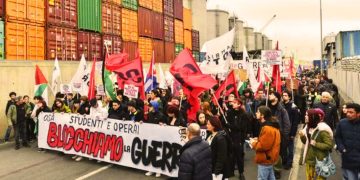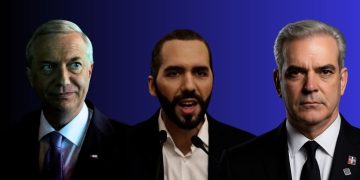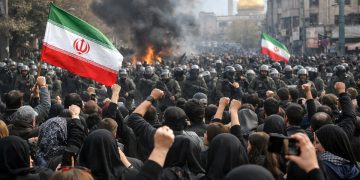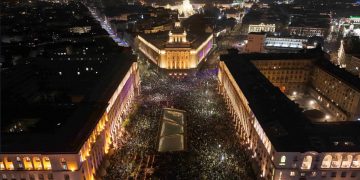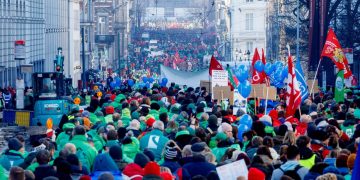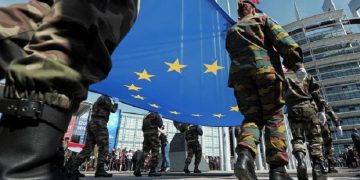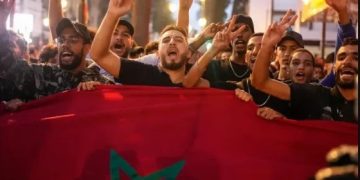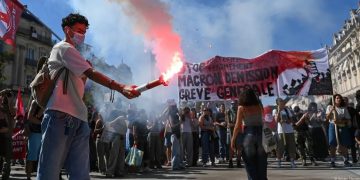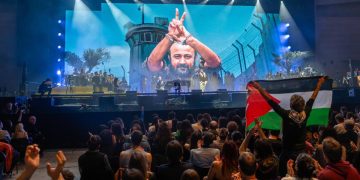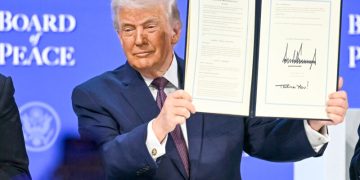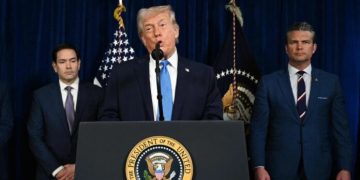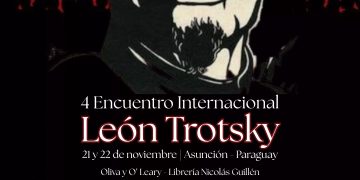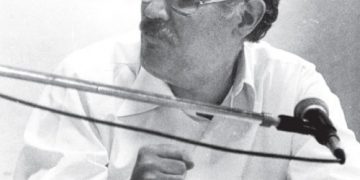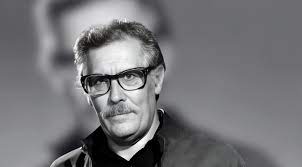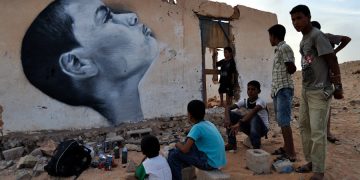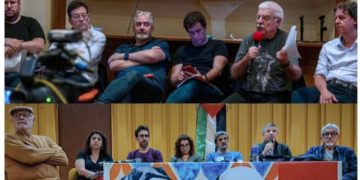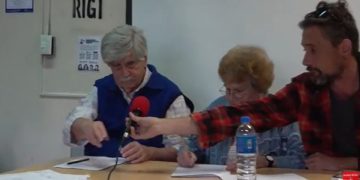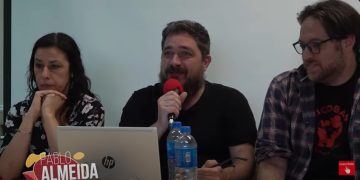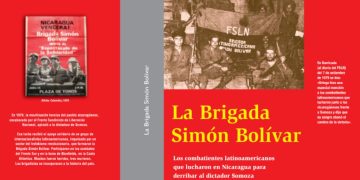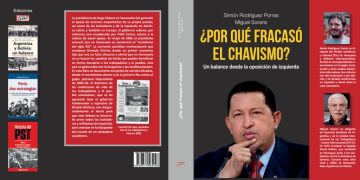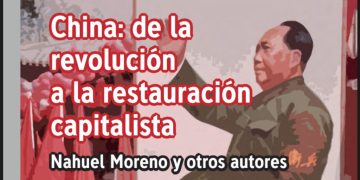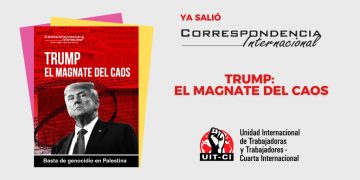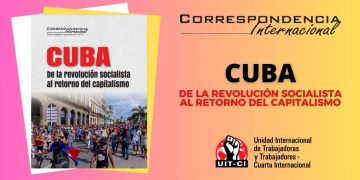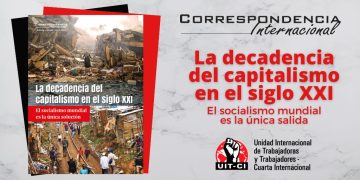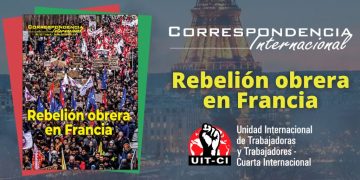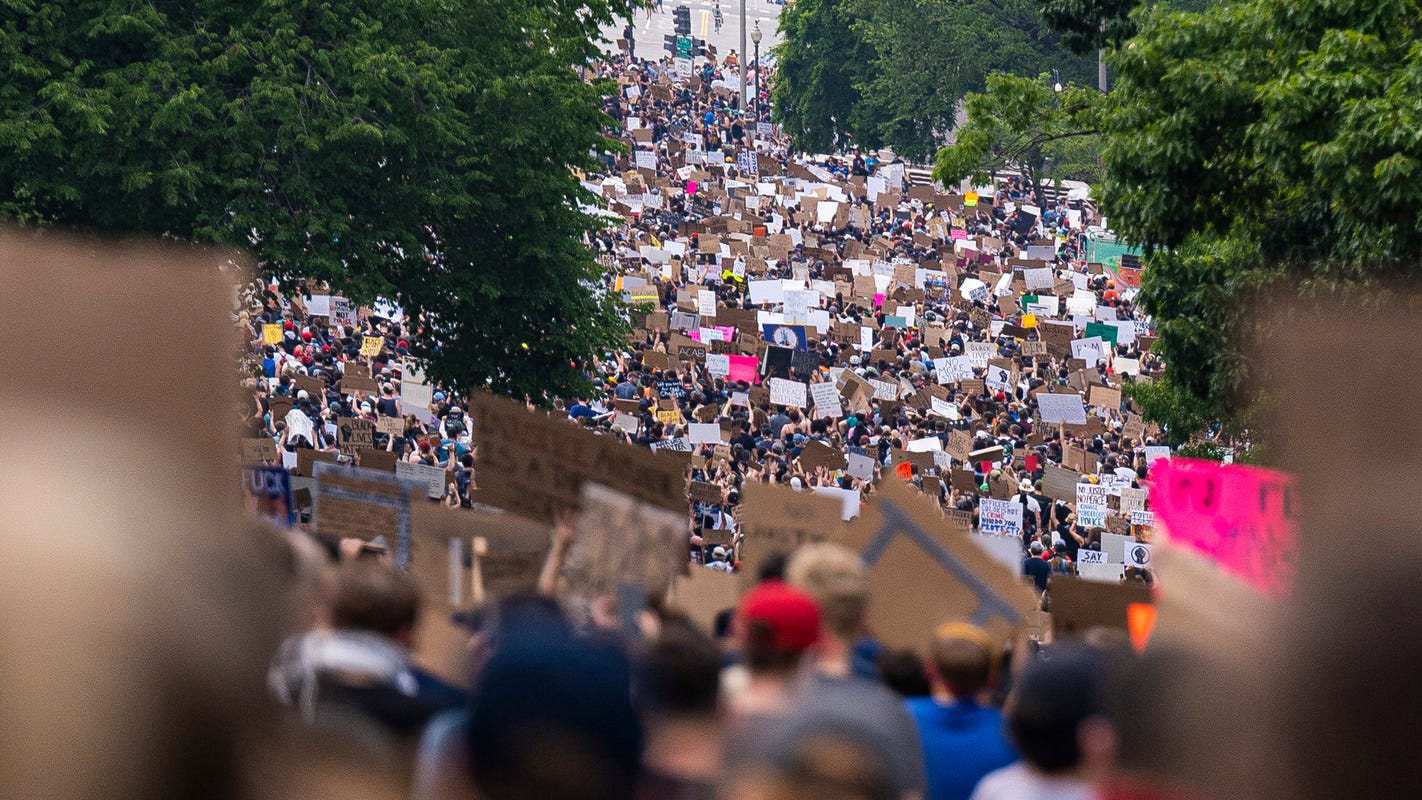 “George, you changed the world”
“George, you changed the world”
Baptist pastor and civil rights activist Al Sharpton at the George Floyd memorial in Minneapolis spoke the words of the title. “What happened to Floyd happens every day in this country,” Sharpton said. “It’s time for us to stand up in George’s name and say get your knee off our necks,” he added.
By Miguel Lamas, an IWU-FI leader
In the name of George Floyd, millions of people filled the streets of America’s major cities again in repudiation of racism, the police and Trump. The movement also has an immense worldwide impact.
But the mobilisation went far beyond any racial divide. In the last few days, millions of young people, workers, the most impoverished white sectors, met in the streets with the same indignation in Minneapolis, New York, Washington, Boston, Miami and Michigan, and over 600 cities. Some say these are the largest demonstrations in U.S. history.
Repression and threats did not stop the movement
In the last days the marches were peaceful, because there was no repression anymore. There were marches from different sectors, and at different times (in New York alone there were 30 different calls on Sunday 7 June).
While the top union leaders of the AFL-CIO, bureaucrats linked to the Democratic Party, said nothing, the solidarity of the working class emerged in all its forms. Most of those protesting were working men and women, who are suffering 42 million layoffs, wage cuts and public health disaster. The tragic toll of Covid 19 has already reached 2 million confirmed infections and 115,000 deaths (affecting predominantly Latinos, Blacks and the poor because of their housing and working conditions).
There were also important organised expressions of workers’ struggle: Urban passenger bus drivers’ unions in New York City, Minneapolis and other cities refuse to cooperate by driving police to the repression.
Health care workers are taking to the streets en masse, demanding that unions and health care organisations take up the fight against racist police violence. There was a one-hour strike by dockworkers and employees on both coasts. With pressure from the rank and file, many other unions have come out with statements of solidarity for George Floyd and the protests. Many workers are putting pressure on their organisations to join in the demonstrations.
Non-union workers are also showing solidarity with the national movement against police violence from their workplaces. In restaurants in different places, food workers refused to prepare food for the police.
In the last few days, Trump, the governors and mayors have had to reverse the repression and lift the curfews. Last Thursday, Trump threatened to mobilise the army to suppress the protesters after tens of thousands of them arrived at the White House and gave him quite a fright. Like most of the threats he made, it had the opposite effect—the next day there were twice as many protesters in the streets!
The Democrats were also beaten
The Democratic Party, the other major imperialist bosses’ party, is trying to take advantage of the situation for the 3 November presidential election against the Trump Republicans. Former President Barack Obama went out publicly to support the legitimacy of the anti-racist demonstrations. Although it is known that under his administration there was no substantial change with either racism or police repression.
However, the Democrats were also hit by the popular protest. New York City Mayor Bill de Blasio (who had been a Sanders supporter at the time) was booed by the crowd gathered at the Floyd memorial, which blamed him for the violent police repression in New York against peaceful demonstrators for violating the curfew. Some thousands of protesters shouted at him: “De Blasio, Go home!” and “Vote against him! The mayor left soon after.
Crisis of the political regime
Trump tried to give a powerful image, declaring himself “president of law and order”. But the results backfired on him.
Already at the beginning of the protests, police were seen in many cities joining the protesters, kneeling on the ground. There were also rumours of military discontent with Trump’s claim that he would use the military in repression.
But most unusually, U.S. Secretary of Defence Mark Esper (who should take orders from the president) rejected the Army’s deployment: “the option to use active-duty forces in a law enforcement role should only be used as a matter of last resort, and only in the most urgent and dire of situations,” the defence secretary said. “We are not in one of those situations now. I do not support invoking the Insurrection Act.”
Former Pentagon (Defence Department) Chief Jim Mattis, who resigned in December 2018 following another public brawl with Trump, said, “Donald Trump is the first president in my lifetime who does not try to unite the American people—does not even pretend to try. Instead, he tries to divide us,” Mattis said. And he added, “Militarising our response, as we witnessed in Washington, D.C., sets up a conflict—a false conflict—between the military and civilian society.”
For an independent leftist movement
Protesters largely identify with Black Lives Matter (BLM). Trump also accused “leftists,” including “Antifa” (which means anti-fascist and is anti-Trump with the United States). But neither of these are organic movements—they have no organisation, no public leaders, and no programme. Various left, human rights, and anti-racist groups are involved in the mobilisation. What predominates is the emergence of an immense new fighting youth vanguard. Many supported Bernie Sanders’ campaign and were disappointed by his resignation and support for Biden. An opportunity is opening up to fight for the building of a leftist movement independent of the two traditional parties.
This is the great weakness of the movement, which the Democratic Party is trying to use for the presidential election, without solving the serious problems of the people, including police and racist repression.
Among the demands, besides justice for Floyd and punishment for his killers, were calls to dissolve police forces or lower their budgets. In Minneapolis, the City Council itself said it would disband the police force, and in New York City, the City Council agreed to lower the budget.
It unleashed a worldwide mobilisation
The assassination of George Floyd and the people’s rebellion in the U.S. led to solidarity protests around the world.
Hundreds of thousands of workers and youth protested in Australia, the United Kingdom, Germany, France, Belgium, the Netherlands, Spain, Hungary, Finland, Sweden, Brazil, South Korea, India, Ghana, Kenya, Liberia, Nigeria, and South Africa, and dozens of other countries. In Canada, thousands of protesters took to the streets in Vancouver, Toronto, and Ottawa.
In Austria, 50,000 protesters gathered. In Bristol, a vast crowd tore down and threw into the waters of the Avon River a statue of Edward Colston, an alleged English “benefactor” and 17th century African slave trader. In London, they marched to the residence of conservative Prime Minister Boris Johnson (a Trump ally) to insult him. In France, 25,000 defied a ban on protests in Paris.
Brazilian workers and popular sectors are demonstrating against Bolsonaro and the wave of police killings in Rio de Janeiro favelas.
This enormous global repercussion shows that millions of workers and youth around the world identify with the struggle in the U.S., because they see similar problems, in many countries also racism and repression, and in almost all the tremendous health and economic consequences of Covid 19 and the capitalist crisis, with hundreds of millions of people fired.
Despite the fear of the resurgence of the coronavirus, the monumental struggles of 2019 against social inequality, environmental destruction and repression, stopped by the long lockdown, are now being resumed with the very important addition of the North American working class. This will undoubtedly strengthen the international struggle of the working class and popular sectors against the plans for hunger, the health crisis and repression in each country. The discussion on fundamental solutions to end the capitalist-imperialist system that destroys human beings and nature is being taken up again. And the need to fight for workers’ governments that build a socialist society.
From the IWU-FI we call to continue supporting the massive struggle in the United States and in the world, against Trump and the repression, for the freedom of the prisoners for demonstrating, justice for George Floyd and punishment for his murderers.
Â








